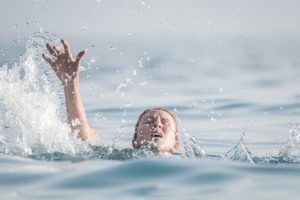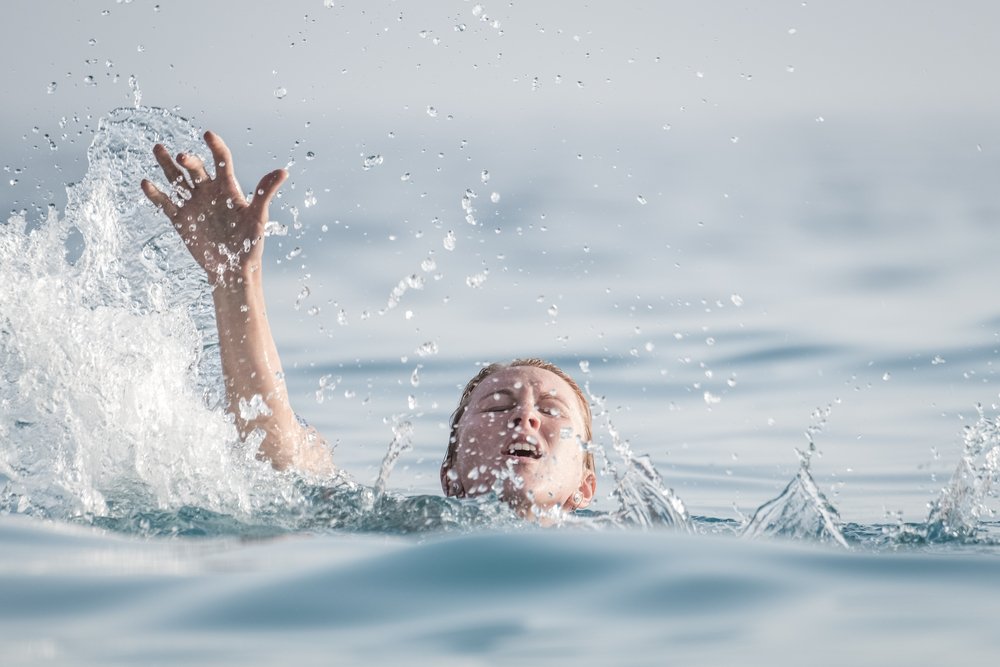
Our drowning accident attorneys can help people who have suffered from a nonfatal drowning accident, as well as family members who have lost a loved one to a drowning fatality.
Every year in the U.S. there are an estimated 3,960 fatal unintentional drownings and 8,080 nonfatal drownings. Victims and their families have the right to take legal action and file a drowning accident lawsuit to get the compensation they deserve.
Non-fatal drowning incidents can result in months, even years in hospitalization and medical care. Injury victims can experience organ damage (including brain damage), head and spinal cord injuries, and hypothermia.
Common defendants in drowning lawsuits include hotels, water parks, and owners of private and public pools. Injured victims can sue these parties under a range of legal theories, including:
Personal injury attorneys can file a drowning lawsuit under one of these theories on behalf of a client. Lawyers can also:
- work with insurance companies to settle drowning accident claims, and
- help manage a drowning victim’s medical treatment.
The Shouse Law Group is a California based personal injury firm that helps victims to bring a drowning accident lawsuit. We work tirelessly for all our clients and seek to get you the biggest settlement possible. Contact our law firm today to get the legal help you deserve.

In the U.S., more young children ages one to four die from drowning than any other cause of death except birth defects.
What are the most common injuries associated with drowning?
According to the Centers for Disease Control and Prevention (CDC), each year in the U.S. witnesses 3,960 drowning deaths.1 Fatal drowning incidents can produce catastrophic losses, both emotional and financial, for surviving family members and loved ones.
The CDC also estimates that there are approximately 8,080 nonfatal drownings in the U.S. every year.2 Survivors in drowning cases will often face hospitalization and may suffer from the following serious injuries:
- brain injuries (including brain damage),
- organ damage,
- acute respiratory distress syndrome,
- hypothermia,
- hypoxia, and
- head and spinal cord injury.
Note that drowning is where people suffocate because a liquid (usually water) covers their mouth and nose and thereby cuts off their oxygen supply.
In the U.S., more young children ages one to four die from drowning than any other cause of death except birth defects.3
Further, nearly 80% of drowning victims are male. Many factors might contribute to higher rates of drowning among males, including increased exposure to water, risk-taking behaviors, and alcohol use.4
Factors that increase the risk of drowning or near-drowning accidents include:
- lack of supervision or negligent supervision (for example, by parents or lifeguards),
- boating accidents,
- absence of fencing or other similar barriers around pool areas and hot tubs,
- failing to wear a life jacket,
- failing to post pool safety or water safety tips for swimmers,
- consuming alcohol, and
- poor swimming ability.5
Who can a person sue following a drowning accident?
Potentially liable parties in pool drowning and other drowning cases will depend on the facts of a case and the jurisdiction in which the victim resides.
With that said, however, common defendants in these cases include:
- property owners and private pool owners,
- owners of public pools,
- apartment complexes,
- water parks,
- recreational centers and neighborhood associations, and
- hotels.
Swimming pool accident victims and drowning victims can base a drowning lawsuit on a wide variety of legal theories. Some of these include:
- negligence (or the failure to uphold a duty of care),
- premises liability,
- product liability (for example, in drowning cases involving faulty pool drains),
- attractive nuisance, and
- wrongful death.
If successful in filing a lawsuit, an injured person is generally entitled to recover all compensatory damages that result from a defendant’s acts.
Compensatory damages can include (but are not limited to):
In very rare cases, injury victims in these matters may receive punitive damages.
Note that in wrongful death suits, surviving family members can recover:
- burial and funeral expenses,
- amounts the deceased would have earned as income, and
- compensation for the loss of the deceased’s companionship and support.
What is the role of a drowning accident attorney?
Prior to filing a lawsuit, a drowning accident lawyer can help an injury victim receive medical care. The lawyer can also manage a party’s medical treatment once initial care is provided.
Attorneys can also investigate injuries and assist in gathering evidence in order to build an effective legal case.
A drowning accident attorney can also send a demand letter to an at-fault party. A demand letter is a document that notifies the party of an injured victim’s intent to file a personal injury claim with the party’s insurance company.
If a claim is unsuccessful or not filed for some reason, a personal injury lawyer can then file and litigate a lawsuit.
Lawsuits are often complex and include many deadlines. Skilled lawyers are best suited to handle these complexities and time limits that must be met.
What are the benefits of hiring a drowning accident lawyer?
Skilled personal injury lawyers will know what a drowning accident case is worth. This means they will help a client receive the exact payout that he/she deserves.
Attorneys can also find hidden value in a case in order to maximize a client’s compensation.
Note that drowning accident cases can sometimes involve several different liable parties, which could mean multiple insurance policies affecting the case. Lawyers are skilled in analyzing insurance policies so as to know with whom to file an injury claim.
While some people injured from a drowning accident can try to represent themselves, people represented by a lawyer usually receive bigger settlements.
For additional help…

Contact our law firm for a free consultation
If you or a loved one was injured in a drowning accident, we invite you to contact our law firm at the Shouse Law Group. Our attorneys and legal team provide both free consultations/free case evaluations and legal advice you can trust.
We work tirelessly to get you the maximum compensation available for your case.
Legal References:
- Centers for Disease Control and Prevention’s website, “Drowning Facts.”
- See same.
- See same.
- See same.
- See same.
